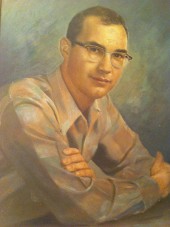Regarding Edward Alwood’s article, “The Role of Public Relations in the Gay Rights Movement, 1950–1969,” published in Journalism History vol. 4 issue 1 last spring:
I hope this gets lots of coverage, because as is pointed out, it was/is media that helped get the movement known.
(I do think I read the article so fast I may have missed lots, but I thought a few things I would add that I think interesting.
I do not think you cover the “fall out” of the Mattachine Convention in Denver in 1959. It got great publicity, but it cost the leaders there their jobs, and that chapter of Mattachine died. And the “plant,” thanks to the San Francisco mayoral race, backfired and got the mayor reelected. I was there and did not think that the unknown person who suggested thanking Mayor Christopher might be an agent of the opposition (Wolden). It got Mattachine good publicity.
I think what Frank Kameny and Randy Wicker, et al., did on the East Coast, some people, like Morris Kight and a few others did on the West Coast (use the press/media). Morris took on a publicity thing others had started and used/fooled the press with the “idea” of us taking over a California county (Alpine).
It was the Homosexual Information Center that sponsored the picketing of the Los Angeles Times, over the rejection of the ad for a play, The Geese. I was there, and it was fun. Morris loved it too.
It is relevant to point out that you point out that two early leading activists, Wicker and Nichols, had to change their names, to “protect” their families.
Although it has been pointed out that, technically, Don Slater and Tony Reyes were not members of Mattachine when they founded ONE magazine, ONE, Inc., did “come out” of Mattachine [through Dale Jennings, Martin Block, and W. Dorr Legg] so there is a continuous connection, and ONE did cover Mattachine and helped publicize the next movement publications, Mattachine Review and The Ladder.
I do think any more “coverage” might include NACHO, and it was at the Chicago conference that Kameny promoted his slogan (Gay is Good). Although I did not feel it was important — I was wrong — but I think we all voted for it. (Later I thought that discussion was like Dale Jennings’ version of the discussion that got them the name Mattachine.)
Thank you for writing this and please get it seen, as it will reach people who will not read a book, especially an “educational” one.


